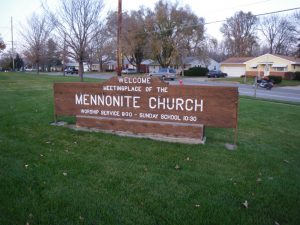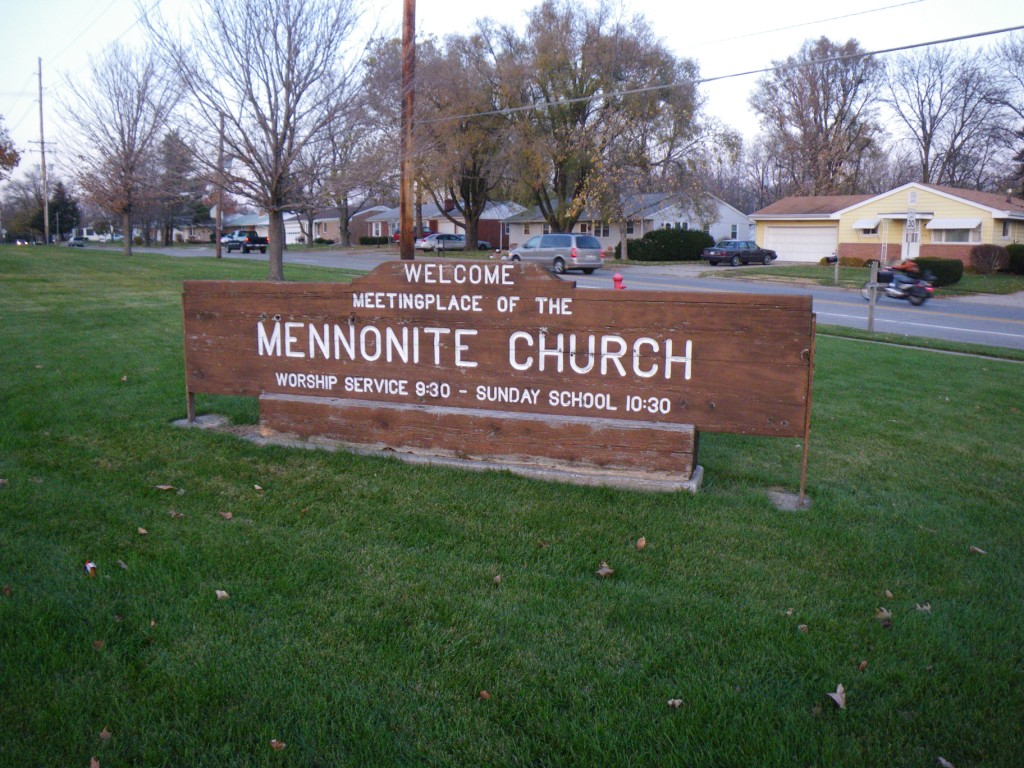by Trevor Fik (Staff Writer)
 The inaugural Mennonite Studies Lecture Series took place at the Abbotsford campus on Tuesday, October 19, coinciding with the announcement that UFV will offer a certificate in Mennonite Studies in the fall semester of 2011.
The inaugural Mennonite Studies Lecture Series took place at the Abbotsford campus on Tuesday, October 19, coinciding with the announcement that UFV will offer a certificate in Mennonite Studies in the fall semester of 2011.
Community members, along with staff and students, packed the B101 lecture hall in order to try and answer the question: what constitutes Mennonite studies? Individuals at the lecture were treated to a series of analyses from a panel whose members who were comprised of professors from such diverse areas as Winnipeg, Ontario and Trinity Western University in British Columbia.
The series was introduced by UFV president Dr. Mark Evered, who noted that the university senate had voted unanimously to approve the Mennonite Studies Certificate program a week earlier.
One of the goals of the program, as noted by Evered, is to provide “reflections of the diverse community in what is being provided by educators at the university.”
With the Fraser Valley having a large number of individuals who identify themselves as Mennonite, Doctor Steven Schroeder, the Mennonite Studies coordinator and a member of the history faculty at UFV, noted that the time was ripe to “introduce the UFV community to Mennonite studies that is prevalent worldwide.”
“The wide range of courses that will be offered in the Mennonite Studies program at UFV will allow students to understand objectively the history, culture and faith of the Mennonite people, and to analyze critically this community that contributes significantly, in many ways, to the Fraser Valley region,” he noted.
The evening’s panel discussion centered on the debate over whether the term Mennonite constitutes an ethnicity, a religion or both.
The first speaker, Dr. Royden Loewen, who is the Chair of Mennonite Studies at the University of Winnipeg, touched upon this idea in his lecture.
He noted that the central means by which determining if Mennonite can be labelled as either a religion or ethnicity, relies on historian’s interpretation of narratives, social etiquette and religious symbols. The label Mennonite further relies on an individual’s self-identification with the group, as this is the most important feature in determining whether someone can be determined to be Mennonite.
Dr. Loewen further noted that central to a Mennonite Studies certificate is the inclusion of several different disciplines of study, including psychology and sociology. These varying perspectives are required in order to understand the complex nature of a type of heritage, and they are necessary to answer the question of what characteristics make up the Mennonite people.
Dr. Marlene Epp continued the discussion on Mennonite identity by reviewing Mennonites in the larger context of a Canadian identity, noting that only when we figure out what it means to be Canadian can we move towards answering the question of what is a Mennonite.
Dr. Bruce Guenther of Trinity Western University focused his discussion on how the Mennonite Study program at UFV can achieve the most success, as evident by his experience maintaining the program at his own school. With over 200 denominations worldwide, Dr. Guenther emphasized the importance in establishing a Mennonite Studies program that is both comprehensive in its scope of study and is seen as acceptable to experts in the field.
The Mennonite Studies certificate is an 18-22 credit certification that was made for individuals seeking employment in the public service sector, social policy and in church work. Those who are interested in entering the program can find more information on the UFV website, or contact program coordinator Steven Schroeder at steven.schroeder@ufv.ca, or contact the program assistant Marlene Murray at marlene.murray@ufv.ca.


